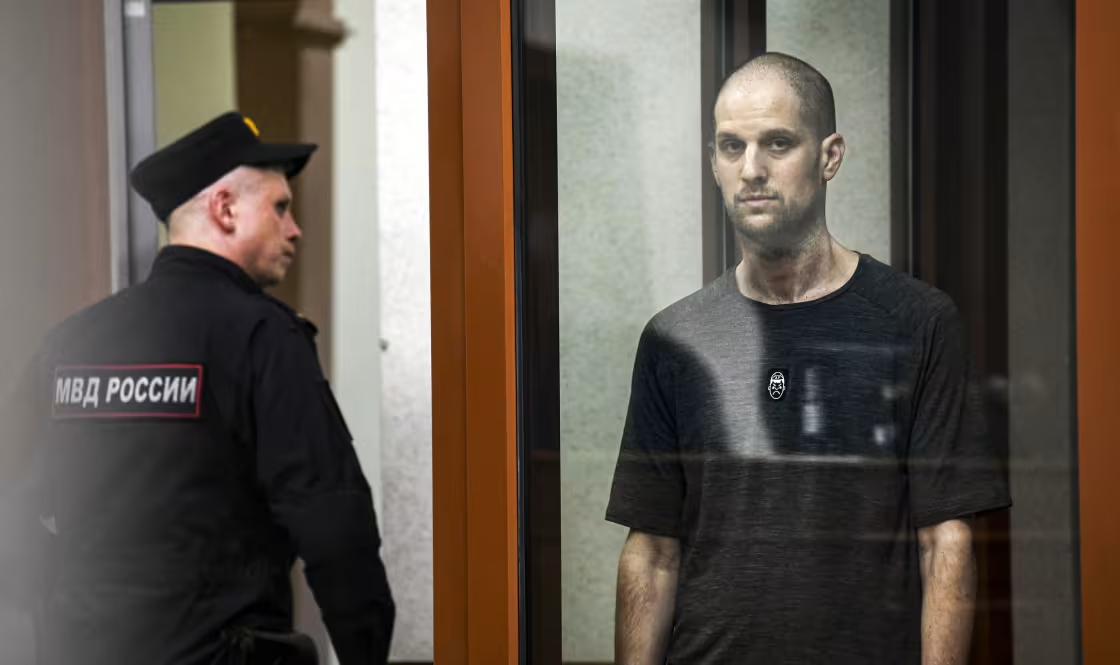WASHINGTON, DC – The families of Americans taken hostage or unjustly detained abroad say the U.S. government’s relatively new hostage policy is of great value as they grapple with one of the most challenging experiences a family can face, according to the findings of a new study released today.
The research, conducted by the James W. Foley Legacy Foundation, is the first non-governmental assessment of hostage policies, put in place in 2015, that created the first point of contact within the government for families with loved ones being held abroad.
The report is being published in partnership with New America, a nonpartisan public policy think tank. A panel discussion at New America with hostage experts is scheduled today to go along with the release.
Families interviewed for the report describe the policy as “very helpful, consistent and absolutely essential in coordinating efforts” on behalf of U.S. hostages. But they also recommend a number of improvements that still need to be made.
The signing by President Obama of Executive Order 13698 and Presidential Policy Directive 30 (PPD-30) on June 24, 2015, created, among other things, an interagency Hostage Recovery Fusion Cell housed at the FBI and the Office of the Special Presidential Envoy for Hostage Affairs. Before 2015, U.S. policies were classified, questions went unanswered, and the profusion of agencies that handled different hostage issues left families feeling desperate, frustrated and angry as they tried to figure out where to turn for information and action.
The report is based on interviews with 27 former American hostages, detainees and their family members and representatives. The foundation is named for conflict journalist James Foley, who was held hostage in Syria and executed by ISIS in 2014. It advocates for the safe return of all Americans held hostage abroad and promotes the safety of journalists, like James, who operate in dangerous conflict areas around the world.
“Having a son or daughter, husband or mother taken hostage or detained in a foreign land is one of the most frightening experiences imaginable,” said Diane Foley, mother of James and founder and president of the foundation. “What do the hostage takers want – money, prestige, disruption, political leverage? Who are the perpetrators? Are they terrorists or authoritarian states? Can they be contacted and reasoned with? Is there a way to get the hostage out alive?”
“Until the creation of the fusion cell and the naming of a presidential envoy for hostage affairs, there was nowhere in the government that families could turn to help answer these questions,” she said.
Among the report’s findings:
- The U.S. government has been more helpful in managing hostage cases and families feel that their loved ones are a greater priority of the government.
- Former hostages and their families are treated with more empathy and compassion and generally feel better understood and supported by the government.
- General understanding of the U.S. government’s laws and policies related to hostage incidents has improved.
- There has been an increase in government coordination in intelligence sharing and communication, and in the government’s ability to disclose candid assessments and plans regarding recovery efforts for U.S. hostages.
- Information shared at government briefings is communicated clearly, and the frequency and accuracy of government briefings have increased.
- Correspondence between the government and hostage families has improved.
However, the study revealed several areas where significant improvements still need to be made:
- There is still a need for more honesty and transparency from government officials.
- Confusion remains over roles within U.S. government agencies.
- There is still confusion on the U.S. policy toward private ransoms and negotiations with organizations designated as terrorist groups by the U.S. government.
- Captors of their loved ones should be prosecuted and brought to justice in the United States for the crimes they committed.
- Over time, there has been a gradual decrease in the presence of officials from the Department of Defense assigned to the Hostage Recovery Fusion Cell.
- Hostage families need robust assistance to address ruined credit and other day-to-day financial challenges.
- Hostages need continued mental and physical health support upon their return.
- Americans unjustly detained and their families do not receive the same level of support as hostage families, since mechanisms and resources required to fully support these individuals do not currently exist.
Participants in the panel discussion are Diane Foley; Cynthia Loertscher, the report’s author; Luke Hartig, former senior director for counterterrorism at the National Security Council and a New America Fellow; and Rob Saale, former director of the Hostage Recovery Fusion Cell and founder and CEO of Star Consulting and Investigations LLC. The session will be moderated by Peter Bergen, vice president, New America.
To read the full report, click HERE.
For more information, contact Margaux Ewen, 917-213-3028 margaux.ewen@jamesfoleyfoundation.org



